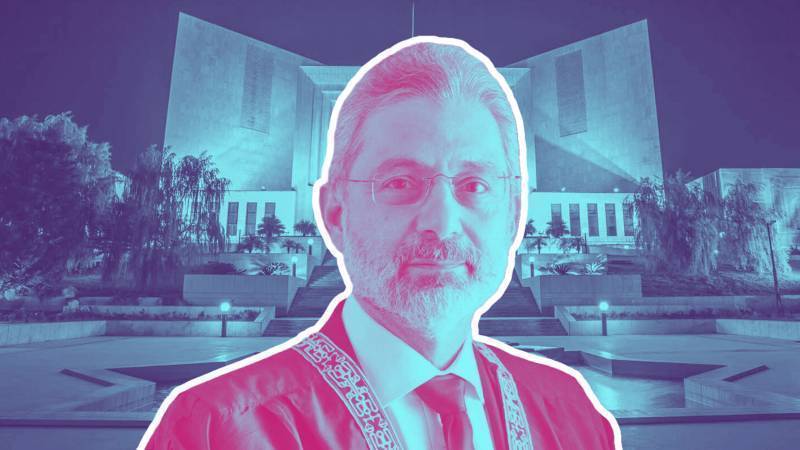
Earlier this month, on the 9th of September, the Supreme Court of Pakistan opened for a new judicial year, and journalists and experts already began interpreting what they observed at the full court reference on the day. Justice Qazi Faez Isa, at the helm of the court, was accompanied by Justice Yahya Afridi and Justice Aminuddin Khan. Missing, however, were Justice Mansoor Ali Shah and Justice Muneeb Akhtar, the two judges who stand to lose a lot from the proposed judicial package that the government hopes to pass as constitutional amendments. What added to several others’ speculation was Chief Justice Qazi Faez Isa’s remarks, where he made no mention of his very soon-to-be-scheduled retirement.
As it currently stands, the constitution stipulates that the retirement age for any Justice of the Supreme Court is 65, which, for the current Chief Justice (CJ), will be reached on October 26 of this year, a day that is expected to bring very polarised sentiments out in the open. It is no secret that Pakistan Tehreek-e-Insaf (PTI) leadership has always remained sceptical of Chief Justice’s conduct in their cases, as evidenced by the judgement that took away their “bat” symbol for the 2024 general elections. This very unofficial yet public feud is probably why the government and the real powers that be seem very keen on coming up with a way to keep the CJ on his seat a little longer, and the only way to do it is a constitutional amendment.
There has been a lot of speculation about what this judicial package may entail. Initially, the intention was to keep the retirement age of all judges at 65 but establish a three-year tenure for the Chief Justice, allowing Qazi Faez Isa to stay at his position for two more years. However, anticipating tangible backlash from other judges, especially the one who may not become CJ due to this alteration of succession order, the government has since decided to introduce an amendment that gives a blanket extension to every judge by increasing their retirement age to 68, effectively increasing the CJ’s tenure by three more years.
The government and its coalition allies currently stand at 213 with Fazlur Rehman’s JUI-F resisting the persuasive lobbying efforts by the pro-Constitutional Package bloc. Even if Maulana gives in and negotiates a favourable political deal for himself, the current regime remains 3 votes short of passing this amendment. The major setback the government faced came from the 8-3 judgement of the full court of the Supreme Court that granted PTI the disputed reserved seats that had previously been distributed between the major government parties. This greatly reduced the government’s numerical strength, which is now banking on members of the opposition’s caucus to defect to the government. However, as per Article 63A of the constitution, read with the judgement of the Supreme Court regarding the issue, the votes of the defecting members are not counted if there is a direction issued by the parliamentary party against it.
At this juncture, the PML-N government faces a dilemma whether to even go ahead with this amendment bill. With the recent arrests from the parliament premise, it is only becoming clear that the state might be using fear and intimidation to force PTI members to defect. Although this might help them in passing the amendment, it would not help them if it is challenged in the Supreme Court, which has the power to strike it down. The only political loophole to the government’s advantage is delay from the Election Commission’s end in implementing the Supreme Court’s verdict on the reserve seat matter. As things stand, about half of PTI affiliated MNAs are not registered as the PTI members and are therefore theoretically independent. Therefore, it can be argued that any direction issued by PTI’s parliamentary party is not binding on them making their vote for the amendment legitimate.
There is no doubt that given the peculiar circumstance in which the election of 2024 was conducted, this constitutional amendment is going to be politicised a lot more than it normally would have been. Moreover, the divisions in the Supreme Court become clearer day by day as the two of the senior most judges after the Chief Justice have decided to distance themselves from the CJ. To the government’s detriment, any challenge to the amendment will be heard by a bench set by the top three judges, Justice Qazi, Mansoor and Muneeb, of the apex court, a possibility they probably did not envision when they passed the Practise and Procedure Bill almost a year ago.
